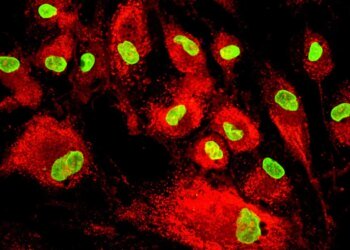
Humans need to get vitamin C from our diet
Kondoros Eva Katalin/Getty Images
According to the textbooks, we lost the ability to make vitamin C because our diet meant that we didn’t need it. But studies in animals suggest losing this ability actually helped our ancestors fight off parasitic infections.
Most animals make vitamin C using an enzyme called GULO. But around 60 or 70 million years ago in our primate ancestors, the gene for GULO mutated and this ability was lost. The same thing has happened in a few other groups of animals, including many bats and some rodents such as guinea pigs.
The conventional explanation is that as long as animals get enough vitamin C in their diet, mutations that break the GULO enzyme aren’t a disadvantage, and so natural selection doesn’t kick in to preserve the enzyme – the change is supposed to be neutral.
Michalis Agathocleous at UT Southwestern Medical Center in Dallas, Texas, started thinking about this back in 2017, after his team discovered vitamin C plays an important role in blood-forming stem cells. If the loss of GULO really is neutral, he wondered, why do so many animals that get a lot of vitamin C in their diet still have a working enzyme?
There does seem to be at least one additional benefit. In animals with a working enzyme, the level of vitamin C in the blood remains constant, whereas the level in human blood varies and can become very low if, say, people have to go without food for a few days.
But if being able to make vitamin C has advantages, why would some animals lose this ability? When it comes to losing a seemingly advantageous trait, the obvious evolutionary explanation is that doing so helped protect against disease or parasites.
Then Agathocleous’s colleagues at UT Southwestern Medical Center discovered that parasitic flatworms called schistosomes lay more eggs if they are given extra vitamin C.
These freshwater parasites can burrow through the skin and grow inside animals. Many of the symptoms of schistosomiasis, as the resulting disease is known, are a result of the immune reaction to the eggs released by the adult worms.
To see if a lack of vitamin C might help protect against the parasites, Agathocleous and his colleagues deleted the GULO gene in some mice.
When fed a diet low in vitamin C, these mice didn’t develop symptoms or excrete eggs in their faeces after infection with schistosomes. By contrast, mice with a working GULO enzyme shed a lot of eggs and mostly died.
“What we have done is provide evidence that there is a benefit,” says Agathocleous. There is no way to prove that the loss of GULO in our ancestors was positively selected for to protect against a disease, he says, but these results show that the idea is at least plausible.
“While many textbooks do state this might be a ‘use or lose it’ situation for the gene GULO, many scientists, including me, believe that there is sufficient evidence to support an evolutionary advantage to this gene loss,” says Deborah Good at Virginia Tech, who wasn’t involved in the study. “Parasite protection could be one of these.”
Topics:
Source link : https://www.newscientist.com/article/2491941-the-real-reason-why-we-lost-the-ability-to-make-vitamin-c/?utm_campaign=RSS%7CNSNS&utm_source=NSNS&utm_medium=RSS&utm_content=home
Author :
Publish date : 2025-08-12 17:00:00
Copyright for syndicated content belongs to the linked Source.





